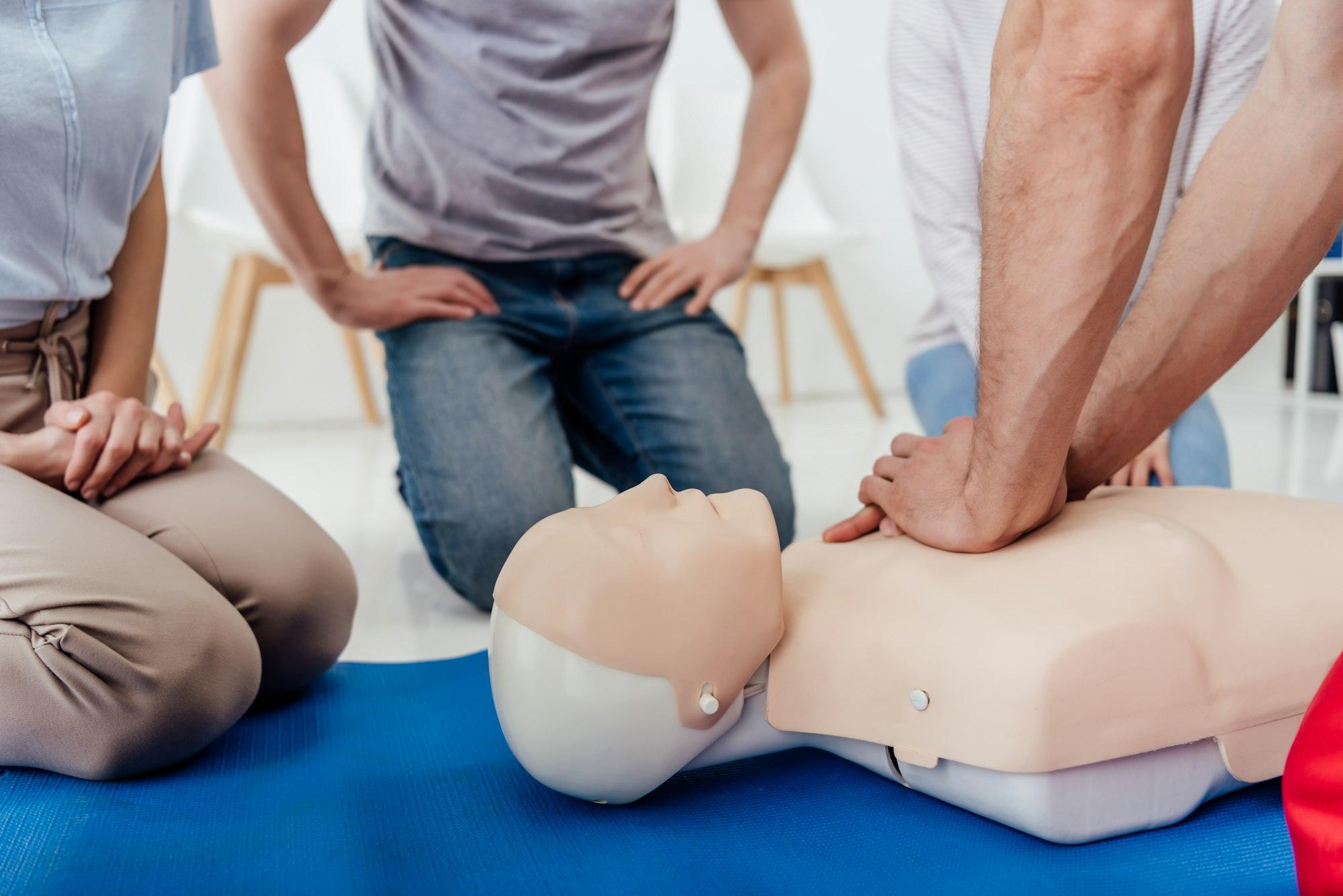Mental Health First Aid Eating Disorder – Eating disorders are a group of related conditions are characterised by an abnormal attitude towards food that causes someone to change their eating habits and behaviour, this can include anorexia, bulimia and binge eating.
What is the definition of the term ‘eating disorder’?
What are the possible types of eating disorders?
Eating disorders include a range of conditions that can affect someone in a physically or psychologically way. The possible types of eating disorders can include:
Anorexia nervosa:
Anorexia come in two different types of anorexia – The restricting type of anorexia and the purging type of anorexia
They both occur when an individual is desperate to lose or keep their weight down as low as possible; for example, by starving themselves from food or exercising excessively.
Bulimia:
Bulimia is when an individual goes through times of binge eating and then deliberately make themselves vomit the food back up or uses laxatives, which is medication to help empty the bowels.
Binge eating disorder (BED):
When a person feels the need to indulge in eating large amounts of food in a very short period of time.
Some people, particularly teenagers, may be diagnosed with an eating disorder not otherwise specified. This could tell you that they may have some but not necessarily all of the signs of any eating disorders such as anorexia or bulimia.
Mental Health First Aid Eating Disorder. What are the causes of eating disorders?
There are no definitive known causes of eating disorders, however, it can be broken down into 3 risk factor category types, before we break them down in more detail, its important to understand that these risk factors in eating disorders are;
- Genetical inheritance
- Peer or social pressure
- Feeling unhappy
- Low self-esteem or moral
- Teenage menopause
- Celebrity watch
Now, let’s break the 3 categories down in turn,
Psychological
- Psychological traits maybe linked to the development of eating disorders, these traits can be caused by hormone changes or during puberty and can also include;
- Possibly feeling towards depression and anxiety,
- Poor reaction to stress and excessive worrying.
- Obsessive thoughts and compulsion to do certain things maybe a factor.
- Inhibition in where the individual detains their own behaviour
Mental Health First Aid Eating Disorder
Environmental
- The environment a person is living in could be a possible cause any eating disorders, these can include thigs such as;
- Having a stressful time in life such as events as a relationship breakdown or loss of employment
- Bereavement and other factors such as family difficulties.
- Peer pressure or stress at school, such as being bullied or stress of school exams
- Family pressure or difficult relationships
- Another factor to consider any possible caused can be in that children who have been abused may develop an eating disorder as a way of control, this could be eating too little or excessive eating for the feeling of comfort.
Biological
- In certain cases, such as extreme dieting, can disrupt the normal functions of the brain making symptoms worse, these could be;
- malnutrition can change the balance of hormones in the body which can affect how the brain functions. These type of changes in hormone changes can cause the brain to become very sensitive and this type of sensitive can cause problems such as feeling anxious when eating – this can then lead to over exercising or staving themselves.
- Another biological factor can also be cause by the brain. Parts of the brain controls the persons sense of appetite and if this lets the body needs food, the brain will react by releasing chemical to stimulate your appetite. It’s been said that this will all become disrupted if the person suddenly has an eating disorder
In summary, eating disorders are symptoms of a lot deeper cause and can include the individual to be depressed, unhappy or insecurity. They could also feel pressured from peers or even been bullied
What are common signs and symptoms associated with eating disorders?
As discussed in an earlier unit, we talked about the 3 main eating disorders and their possible causes – now let’s explore the different signs and symptoms associated with 3 types of eating disorders, these would be:
Mental Health First Aid Eating Disorder
Anorexia nervosa:
This occurs mainly in teenage girls as they are conscious about the way they look, but it is rapidly affecting boys too.
Signs and symptoms would be;
- The person will be very thin, for the reasons of an unyielding pursuit of thinness to have a normal healthy weight for their size and a fear of gaining weight.
- They would be extremely restricting their diet and their self-esteem would be influenced by perceptions of body weight and shape, they may also be in denial of having a low or unhealthy BMI
Bulimia nervosa:
This is when a person eats a large amount in a meal and feeling a lack of control over these episodes. This type of eating forces the individual to have un-normal behaviours and may act in the following ways;
- Forced themselves to vomiting after eating the food.
- Excessive use of laxatives.
- Extreme or over exercising.
- In some cases, all of these traits maybe visible.
Binge-eating disorder:
- Individuals with this condition are usually overweight or obese.
- This then makes them at risk of heart disease, diabetes and high blood pressure for those obese
- A sense of guilt, shame or distress about their weight or obsessive binge eating can lead to more eating, and this can become a vicious circle
For further information on any mental health please contact us here or if you would like to book an in-house mental health awareness first aid course
Please see our range of free resources here










